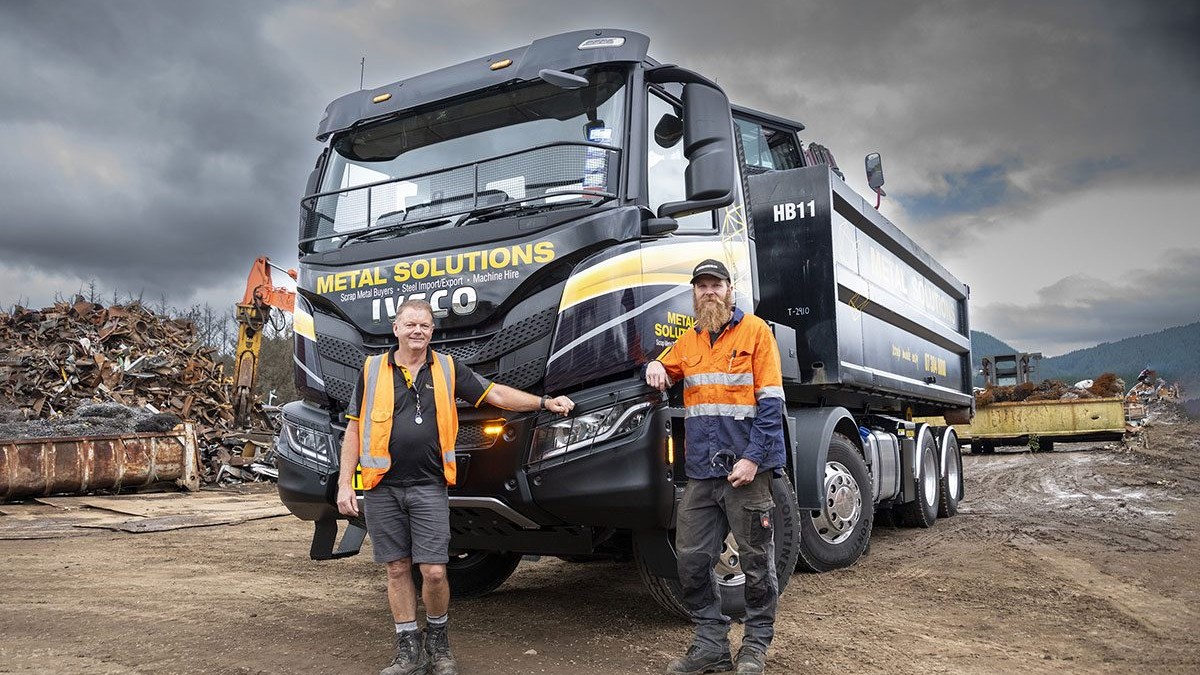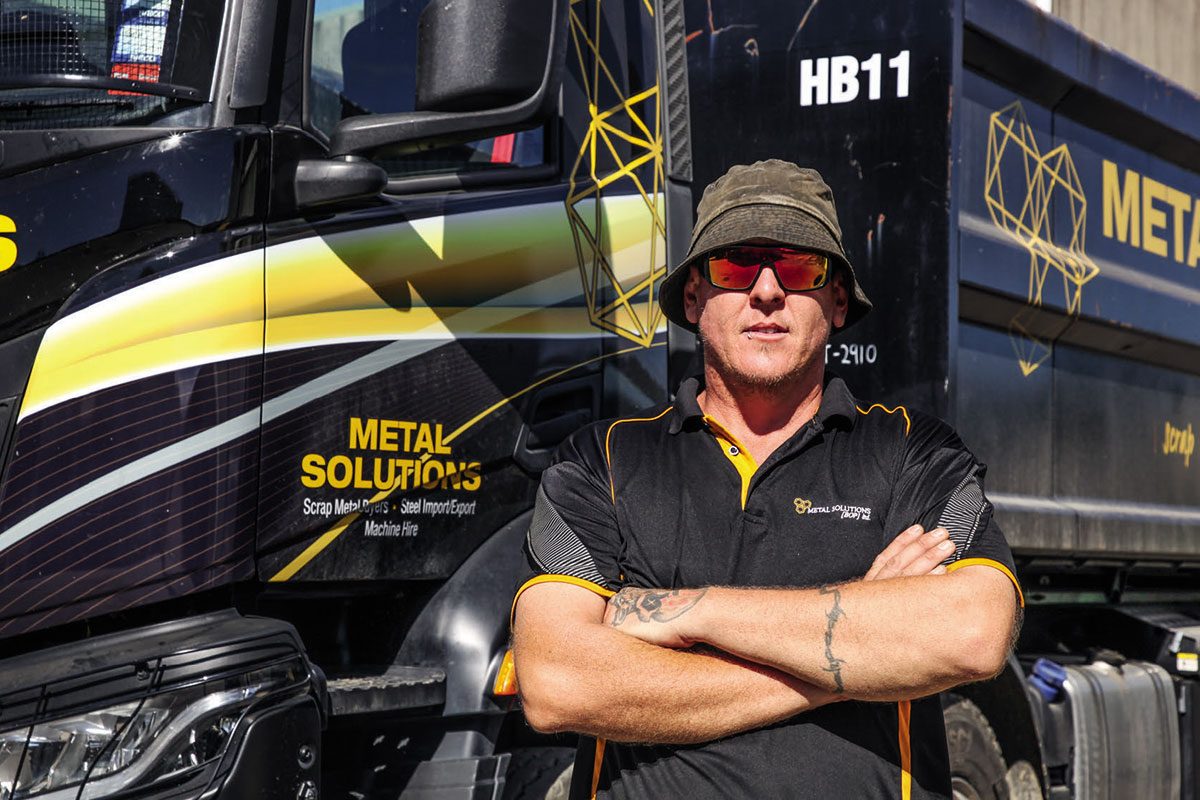
”Nobody melts steel in New Zealand anymore in any great quantity. That’s been the big change in the local scrap market,” comments Metal Solutions director Dave Fretwell. “Ten years or so back, when the Pacific Steel Mill in Otahuhu was operating, most steel scrap went there, with a small amount exported.”
Since then, the industry has turned 180 degrees, much to the benefit of scrap dealers like MSL.
“The advantage of things now is a little company like ours has very similar selling clout to the likes of the big companies, though they have higher volume and break bulk load, whereas we’re containerising.”
Whakatane-born and with a background in agricultural engineering, Dave’s journey into the world of scrap began more than three decades ago, having spent 12 years in engineering, then 20 years with other scrap metal companies before starting MSL in 2012 in partnership with his wife Jo.
“Jo is now semi-retired, though she still does quite a bit in the background. Building the business, I could never have done it without her support and her nous … I can sit down with her and have the conversation about a big spend, where the value is, the clients we’re trying to look after, and the solutions – having someone with that ability and support is awesome,” he says with a smile.
“Twelve years ago, I started trading and buying surplus steel pipe off a job in Waikato. We built a whole market supplying steel culvert and casing pipes, mostly into the farming and forestry sectors, and we needed to replace that stock, so we began to think about importing. It was all new territory and interesting at first; we learnt a few lessons.”
They decided to stick with import of steel pipes and plate. “We have big rollers and we cut pipes to length, make sockets, flood gates, and wing walls … That’s all done from here, too.”
It didn’t take long for some of Dave’s old customers to approach MSL about doing scrap again. “And a couple of months later, I was looking for a truck,” he says.
“I bought an old 2003 Volvo hook truck and rejigged it slightly with a crane behind the cab – so it was a crane hook, my one truck that did everything. We got busier and ended up needing another, and a trailer … as it goes.
“That original Volvo is still going up in Auckland.”
Today, MSL services clients in the upper North Island and enjoys a close working relationship with Waiotahi Transport, which moves MSL’s containers directly to port. “We do a significant tonnage of export scrap in containers to the port. Steven Clayton at Waiotahi gives us great service; he’s all over it, and great to deal with.
“Scrap steel goes to many overseas markets to be recycled into new steel. Steel is an endless-cycle material. You can just keep melting and reusing it,” Dave says.
With the prospect of New Zealand Steel’s $300-million Glenbrook electric arc furnace on the horizon, which would likely be able to process all the country’s export scrap steel volume, the scrap market could be in for another major turnabout in the next few years.
“In the past, it was nice to melt in Auckland, but you had all this local freight and the cost of getting scrap to Auckland [as opposed to local ports],” Dave comments. “KiwiRail’s promised container terminal at Kawerau will open the option to look at containerised train loads; it’s an ideal product to put on rail.”
Read more
Against the tide
0 Comments5 Minutes
To the shredder!
0 Comments2 Minutes





